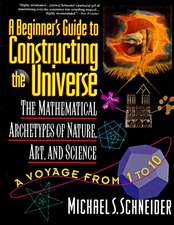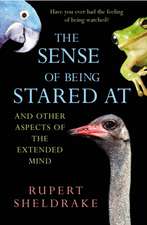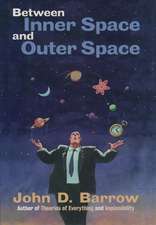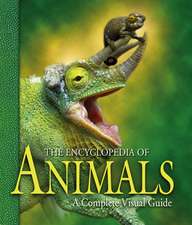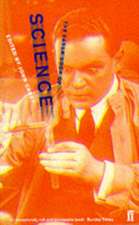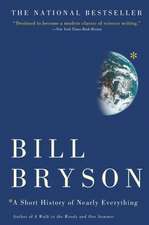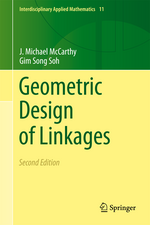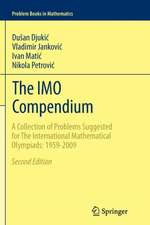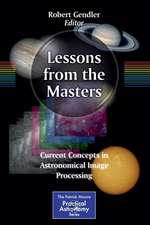The Science of Life: Contributions of Biology to Human Welfare: FASEB Monographs, cartea 1
Editat de Kenneth Fisheren Limba Engleză Paperback – 22 dec 2012
Preț: 392.37 lei
Nou
Puncte Express: 589
Preț estimativ în valută:
75.09€ • 78.11$ • 61.99£
75.09€ • 78.11$ • 61.99£
Carte tipărită la comandă
Livrare economică 14-28 aprilie
Preluare comenzi: 021 569.72.76
Specificații
ISBN-13: 9781468426304
ISBN-10: 1468426303
Pagini: 388
Ilustrații: XXV, 358 p.
Dimensiuni: 152 x 229 x 20 mm
Greutate: 0.52 kg
Ediția:Softcover reprint of the original 1st ed. 1972
Editura: Springer Us
Colecția Springer
Seria FASEB Monographs
Locul publicării:New York, NY, United States
ISBN-10: 1468426303
Pagini: 388
Ilustrații: XXV, 358 p.
Dimensiuni: 152 x 229 x 20 mm
Greutate: 0.52 kg
Ediția:Softcover reprint of the original 1st ed. 1972
Editura: Springer Us
Colecția Springer
Seria FASEB Monographs
Locul publicării:New York, NY, United States
Public țintă
ResearchCuprins
I. Introduction.- II. Basic Biomedicine.- Speed of application.- Reproductive physiology.- Regulatory mechanisms.- The lungs.- The hormones, insulin and diabetes.- Hormones and ulcers.- Neurophysiology and mental diseases.- Cardiovascular diseases.- Comparative physiology.- Macromolecules and DNA.- The proteins.- Enzymes.- Biosynthesis.- Metabolic events.- Energy.- The molecular basis of disease.- Rational design of drugs.- Application of basic knowledge.- Selected additional reading.- III. Clinical Medicine.- Infectious diseases.- Parasitic diseases.- Community health and epidemiology.- Military research contributions.- Drugs.- Immunology.- Transplantation.- Anesthesiology.- Surgery.- Cardiovascular surgery.- Cardiovascular disease.- Renal disease.- Pulmonary disease.- Hematology.- Endocrinology.- Medical genetics.- Pediatrics.- Obstetrics and gynecology.- Geriatrics.- Nutrition.- Neurology.- Psychiatry.- Ophthalmology.- Otorhinolaryngology.- Radiology.- Nuclear medicine.- Bioengineering.- Automation.- Rehabilitation.- Conclusion.- Selected additional reading.- IV. Dental Science.- Dental decay.- Periodontal disease.- Other clinical considerations.- Delivery of dental services.- Dental materials.- Orthodontics.- Surgical orthodontics.- Maxillofacial prosthesis.- Selected additional reading.- V. Food.- Food from plants.- Harvest to table.- Food from animals.- Animal disease control.- Preserving and distributing food from animals.- Processing and preserving foods ..- Conclusion.- Selected additional reading.- VI. Population Biology.- Population potential and carrying capacity.- Populations in ecosystems.- Controlling pest populations.- Selected additional reading.- VII. Environmental Hazards.- Biological hazards to man.- Chemical hazards to man.- Physical hazards to man.- Selected additional reading.- VIII. Marine Sciences.- Feeding man.- Resource assessment.- Behavior studies.- Value of prediction offishing success.- Preservation of fishery products.- Fish protein concentrate.- Management of renewable resources.- Diseases and parasites.- Man and his environment.- Health and medical research.- Selected additional reading.- IX. Natural Resources.- Man and his resources.- Land: the greatest resource.- Forest and timber resources.- Game management.- Technology in resource management.- Microbes—the unseen resource.- Conversion of waste to resource.- Preserving for the future.- Conservation of man’s abundance.- Selected additional reading.







